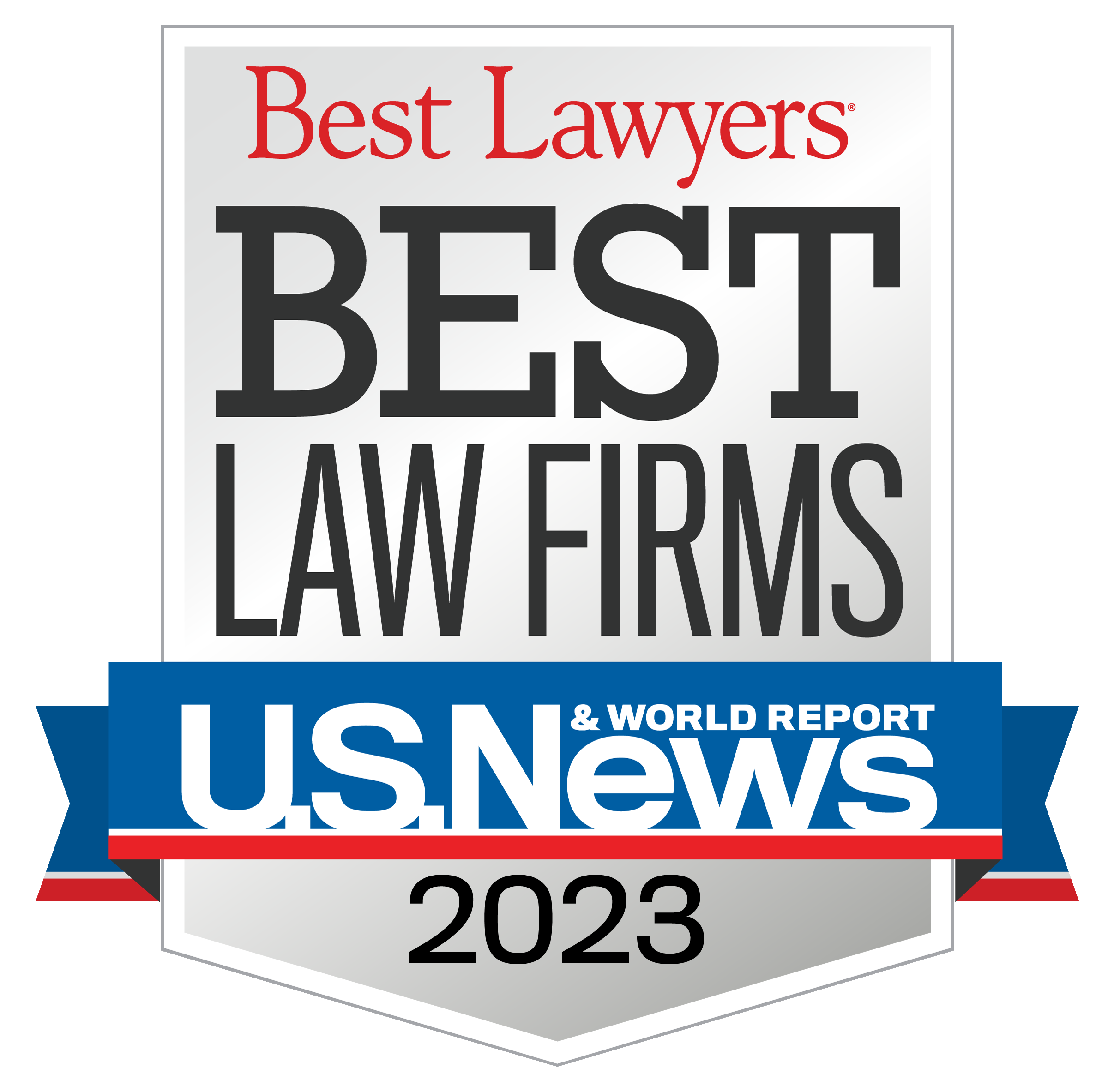Florida Car Accident Lawyer
There is a lot to unpack when you find yourself in need of a Florida Car Accident Lawyer. Among the immediate logistics of medical care, getting your car fixed or replaced, and dealing with time off work for recovery or other appointments – finding a lawyer to assist with negotiations between you and the insurance companies involved is a key factor in a favorable outcome.
The team at Abrahamson & Uiterwyk has attorneys across the Tampa Bay area ready to review your case and offer advice. Find a highly experienced local Florida car accident attorney at one of our offices across the bay area:
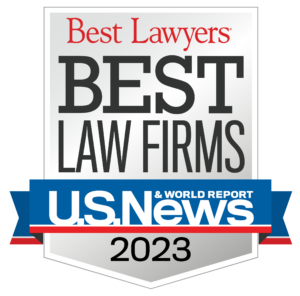
- Tampa, FL Car Accident Injury Lawyers
- Lakeland, FL Car Accident Injury Lawyers
- Clearwater, FL Car Accident Injury Lawyers
- St. Petersburg, FL Car Accident Injury Lawyers
- New Port Richey, FL Car Accident Injury Lawyers
- Palm Harbor, FL Car Accident Injury Lawyers
- Sarasota, FL Car Accident Injury Lawyers
- Spring Hill, FL Car Accident Injury Lawyers
- Pinellas Park, FL Car Accident Injury Lawyers
- Town ‘N’ Country, FL Car Accident Injury Lawyers
- Brandon, FL Car Accident Injury Lawyers
- Hardee County, FL Car Accident Injury Lawyers
- Orlando, FL Car Accident Injury Lawyers
- Bartow, FL Car Accident Injury Lawyers
- Brooksville, FL Car Accident Injury Lawyers
- Crystal River, FL Car Accident Injury Lawyers
- Citrus County, FL Car Accident Injury Lawyers
- Dade City, FL Car Accident Injury Lawyers
- Homosassa, FL Car Accident Injury Lawyers
- Hudson, FL Car Accident Injury Lawyers
- Inverness, FL Car Accident Injury Lawyers
- Largo, FL Car Accident Injury Lawyers
- Lutz, FL Car Accident Injury Lawyers
- Oldsmar, FL Car Accident Injury Lawyers
- Palmetto, FL Car Accident Injury Lawyers
- Plant City, FL Car Accident Injury Lawyers
- Port Richey, FL Car Accident Injury Lawyers
- Port Charlotte, FL Car Accident Injury Lawyers
- Riverview, FL Car Accident Injury Lawyers
- Ruskin, FL Car Accident Injury Lawyers
- Sebring, FL Car Accident Injury Lawyers
- Sumter County, FL Car Accident Injury Lawyers
- Sun City Center, FL Car Accident Injury Lawyers
- Tarpon Springs, FL Car Accident Injury Lawyers
- Valrico, FL Car Accident Injury Lawyers
- Venice, FL Car Accident Injury Lawyers
- Wesley Chapel, FL Car Accident Injury Lawyers
- Winter Haven, FL Car Accident Injury Lawyers
- Zephyrhills, FL Car Accident Injury Lawyers
Our team is here to help – reach out to any of our offices above or give us a call at (866) 934-3104 today
Florida drivers experience around 400,000 auto accidents a year.
With all those crashes, one or more drivers are at fault. Florida is a no-fault state, meaning a driver’s insurance must pay for their injuries regardless of fault. However, even in a no-fault state, the driver who caused the accident can still face a lawsuit.
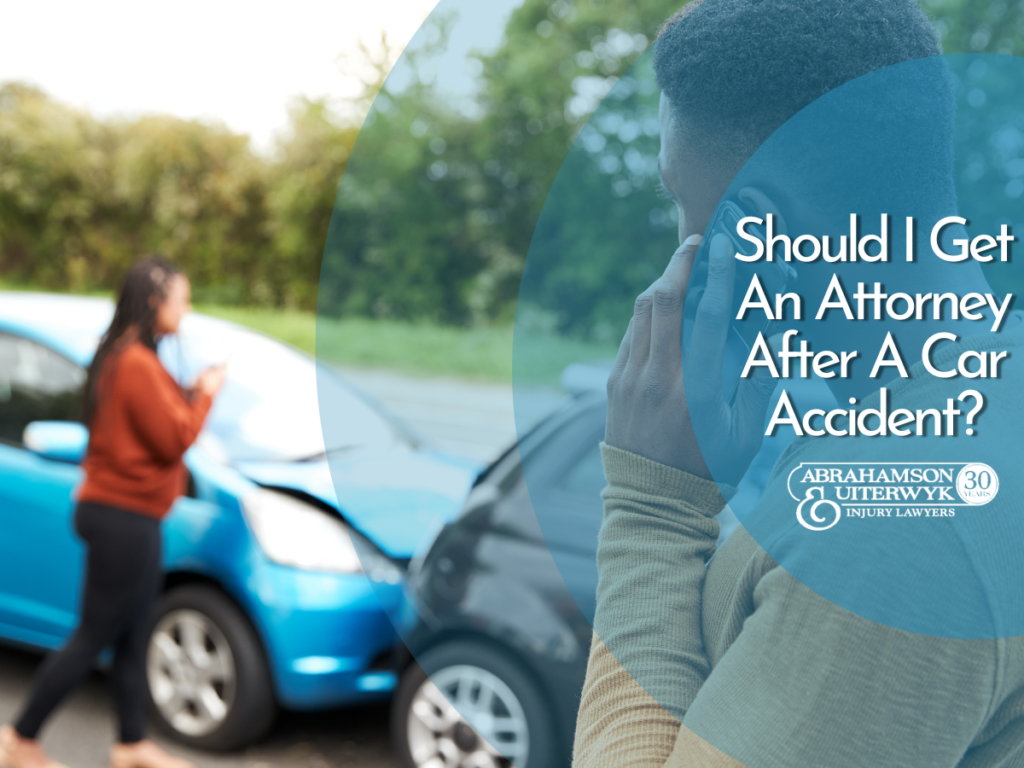
Should I Get an Attorney After a Car Accident?
It’s a common question: You just had a car accident and you’re wondering “Do I need a lawyer after a car accident?”
The simple answer is, it depends. There are many types of car accidents where a lawyer will not be needed as they are pretty straightforward, minor, and without any significant injuries or property damage. In these cases our team of expert Florida car accident lawyers would likely suggest that legal counsel is not necessary, however, there are always extenuating circumstances so what works for one case may not work for another. The best thing to do after you’ve been in a car accident in Florida and you’re unsure if hiring a lawyer would be the right call is to contact us. We are more than happy to discuss your case with you and to give you the best advice for your situation, even if that advice is not to pursue legal action, and the consultation is completely free so there’s really nothing to lose
Call us 24/7 at 800-538-4878 to get your FREE case review.
¿Necesitas ayuda en Español?
Do I Need a Lawyer for a Car Accident Settlement?
If you have been involved in a car accident in Florida where you or a loved one has been injured and there is going to be some sort of settlement involved from an insurance company you need to understand that a Florida driver’s legally mandated personal injury insurance only covers 80% of their medical costs and 60% of lost wages. The personal injury insurance caps benefits at $10,000 for medical and disability benefits and up to $5,000 for wrongful death.
Because medical bills and lost wages from a car accident usually exceed those limits, the injured party is likely to sue. The driver responsible for the accident (or their insurance company) should pay for the injuries they caused. By hiring an auto wreck lawyer when seeking a car accident settlement or a multiple injury settlement, you greatly increases your chances that the compensation payout will be more, thus being an amount that will actually cover your medical bills.
This is just a small portion of the complicated amount of information you need to know, understand, and utilize to ensure your car accident settlement is adequate to your present and future needs. If you have experienced a car accident, we absolutely think you should get a Florida car accident lawyer to help with your case. Even if you have been injured while a passenger in a rideshare accident, such as an Uber or Lyft, contact one of our Uber accident settlement lawyers. Over the past 30 years, our car accident attorneys have represented over 20,000 injured victims and won millions of dollars of compensation. Learn more about our recent car accident passenger settlements, recent settlements for fractured ribs, or recent spine injury settlement amounts.
When to Get an Attorney for a Car Accident in Florida
You’ve just been in a car accident, do you need a lawyer? As we mentioned before a car accident attorney is not always needed when you’ve been involved in an accident, so when is it needed? There are many reasons why you would want to contact a car accident lawyer near you about retaining their services and pursuing a personal injury claim. After your accident, you should ask yourself these six questions to help you decide if contacting a lawyer is the right decision:
- Am I or a loved one injured? It is very important to seek medical attention after you’ve been involved in a car accident, even a minor one, since injuries like whiplash, sciatica, or back injuries can sometimes take days or even weeks to show up. Neglecting to seek medical attention could lead to more serious injuries such as herniated discs.
- Did I lose time at my job as a result of this accident? Loss of wages is a very real part of being involved in a car accident. If you are injured an unable to work your employment prospects could be negatively impacted.
- Was there significant property damage? Even if you don’t end up seriously injured after a car accident your vehicle and the belongings inside of it could be completely destroyed and insurance is not always able to provide the amount necessary to replace these items. There may be some discussion around road hazards and damage to your car after a wreck, we can help with that, too!
- Has your car accident insurance claim been denied? Insurance companies thrive on loopholes, if they can find a way to keep from paying they will and this includes car accidents. If your attorney cannot negotiate a settlement, they may recommend filing an insurance lawsuit. Learn more about Farmers insurance lawsuits as well as other insurance disputes.
- Was the insurance settlement to small to cover all expenses? As mentioned above, there are cap amounts on how much an insurance company is required to pay after a car accident. Very often those amounts don’t cover the full cost of expenses incurred after the accident especially if you are dealing with serious injuries such as if you are seeking compensation a fractured sternum.
- Was it a hit-and-run accident? Hit-and-run car accidents can make it feel like there is no one to hold accountable. You need a hit-and-run accident lawyer to help you get the compensation you deserve.
If you answered yes to any of these questions it’s time to contact an experienced car accident attorney in your area. They will be able to advise you on the best way to proceed and help prepare a strong case for why you deserve more significant compensation after your accident. And since we work on a contingency fee basis you don’t need to worry about paying upfront. We only get paid if you win.
It is important to note as far as a timeframe for when to get an attorney after a car accident in Florida goes, the sooner the better. There is a statute of limitations for personal injury claims in the state of Florida and once that has run out it isn’t possible to pursue legal action. You typically have 2 years to submit a claim which is why it is important to reach out to a qualified car wreck as soon as you can after your accident to get things moving. Our team of aggressive personal injury lawyers in Florida are here to fight for you. Gain insight into the average compensation for hip injury by taking a closer look at some of our cases.
Call us 24/7 at 800-538-4878 to get your FREE case review.
¿Necesitas ayuda en Español?
Client Reviews for our Car Accident Attorneys
What Our Clients Say:
Learn the Common Reasons Why a Florida Car Accident Lawyer Might Not Be Able to Take Your Case.
Car accident lawyers can’t take every client. Here are the most common reasons why a Florida car accident attorney may not be able to take your case:
9 Things That Might Impact Your Florida Car Accident Case
- Your Own Negligence Played Too Big a Role in the Accident
- The Statute of Limitations Has Expired
- The Accident Didn’t Take Place in Florida
- Your Injuries Are Not of A Serious Nature
- Your Case Presents Medical Care Issues
- You Are Shopping Around For The Lawyer That Offers The Most Money
- You Refuse to Take Your Lawyer’s Advice
- You Have Unrealistic Expectations About the Value of Your Claim
- Your Case is too Risky to Pursue
1. Your Own Negligence Played Too Big a Role in the Accident
Florida is a modified comparative negligence state. This means that if you are found to be no more than 50% at fault for the accident, your recovery is reduced by the same proportion as your percentage of fault. As an example, if you are found to be 20% at fault in an accident, you may still recover 80% of your damages in a lawsuit. If, however, your percentage of fault is found to be more than 50%, you are barred from any recovery under the law.
2. The Statute of Limitations Has Expired
After an accident, you only have a certain amount of time to file a lawsuit. This is called the statute of limitations, and your Florida car accident attorney must abide by this law. The statute of limitations varies depending on the reason behind your lawsuit and the state law.
Lawmakers create statutes of limitations because they don’t want victims to sue years after an accident. Judicial efficiency requires lawsuits to proceed soon after the accident. Also, witnesses and medical exams are likely to be more accurate and persuasive soon after your accident. For these reasons, statutes of limitations make sense, even if they don’t seem fair to victims.
In Florida, a statute of limitations applies to car accident injuries. This means you can’t wait too long to file your lawsuit, or a judge may toss your lawsuit out. To avoid the Florida statute of limitations, contact a Florida car accident attorney soon after your accident.
Get a Free, No Obligation Case Review
The truth is, speaking with a Florida car accident attorney about your case is a no-risk, all-reward proposition. If you’ve been injured in an accident, it’s well worth your time to consult with an attorney so that you can learn your best path forward, even if that doesn’t mean hiring a lawyer.
3. The Accident Didn’t Take Place in Florida
You’ll want to consider where your accident took place when choosing a law firm. That’s because tort law differs from state to state. In the United States, we have federal law and state law. Federal law governs things like civil rights, tax fraud, and copyright violations. However, state law governs most aspects of personal injury cases, like the statute of limitations or non-economic damages caps.
Also, you must file a lawsuit in the proper jurisdiction, which means the court allowed to hear the case. In general, you should file your lawsuit in the state where your accident took place. Other options include filing your lawsuit in the defendant’s home state or in your state if certain exceptions apply. You can sue in federal court if you have at least $75,000 in damages, and you and the other driver are from different states.
Our Florida car accident attorneys are experts in Florida law, where we have decades of experience. If your accident took place in Florida, we can explain the Florida laws that apply to your accident injury.
Whether you were injured in Florida or another state, give us a call, and we can discuss your out-of-state car accident case.
4. Your Injuries Are Not of A Serious Nature
Car accidents are terrible, and if you walked away from one without serious injuries, consider yourself lucky. However, that good fortune means that you might not have substantial damages for a lawsuit.
Lawsuits take time and money to negotiate or bring to court. So, a Florida car accident attorney evaluates your case to make sure you can get enough money for your effort. This requires an attorney to calculate all possible damages from your car accident.
In Florida, personal injury damages come in three different categories.
Economic Damages
Economic damages reimburse you for actual expenses resulting from your lawsuit. This includes things like medical bills, car repairs, and lost wages. A Florida car accident attorney adds up your receipts (or estimates) and presents them to the defendant’s attorneys. These damages are usually simple and straightforward.
Non-Economic Damages
Non-economic damages can be a little more challenging to calculate. These damages cover your emotional injuries, such as the pain and suffering that you experienced because of your accident. Pain and suffering can show up in forms like anxiety, depression, or insomnia. Loss of companionship or loss of consortium also fits into this category. This means that people in your life can’t enjoy activities with you like they did before your accident.
Punitive Damages
Punitive damages aren’t awarded as often as the other forms of damages. Punitive damages exist for times when the defendant deserves punishment for bad behavior. For instance, if you were hit by a drunk driver, the court might award punitive damages.
As you can see, your injuries alone don’t form the total basis for your claim. We can help you calculate other damages and determine if you have enough damages to pursue a lawsuit.
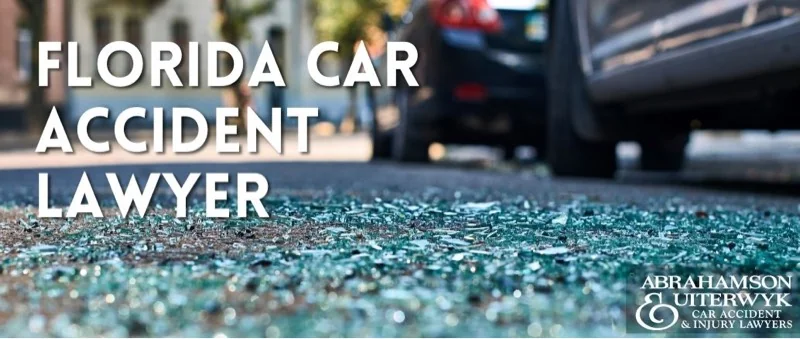
5. Your Case Presents Medical Care Issues
If you were seriously injured in a car accident, you might need long-term medical care. For instance, your injuries might require extensive physical therapy or a live-in nurse. It also takes time to diagnose some injuries like post-concussion syndrome or chronic thyroid disorders after a car accident.
Long-term medical care can mean enormous medical bills. These medical bills significantly impact a settlement. Your personal injury attorney should request full compensation for all medical costs that result from your accident.
Because our attorneys value transparent relationships with our clients, we only take cases that we think we can win. If long term medical care issues concern you, we will discuss our expertise in settling those expenses before you hire us.
Long term medical care is stressful enough without adding financial burden. You need a Florida car accident lawyer who will make sure you don’t have financial worries on top of your long-term injuries
Call us 24/7 at 800-538-4878 to get your FREE case review.
¿Necesitas ayuda en Español?
6. You Are Shopping Around For The Lawyer That Offers The Most Money
Our Florida car accident attorneys have recovered hundreds of millions of dollars for our clients. However, we value honesty and integrity, and these values prevent us from deceiving clients.
After hearing your story, we conduct a free case evaluation. We calculate possible damages and let you know if you have a strong case. We don’t want to overpromise and underdeliver.
For that reason, you may find other Florida car accident attorneys who promise you more money. These lawyers may or may not be able to deliver on that big figure. We can’t guarantee victory in every case, either. However, we only take your case if we think we can win it. We don’t charge you anything until we successfully settle your case.
We work promptly as we aggressively negotiate with insurance companies to get the most money possible in the shortest time. With ten attorneys and 40 legal staff, we have the resources needed to move your case quickly to settlement.
However, we won’t promise inflated settlement amounts to get your business. If you want honest, experienced legal representation, call our Florida car accident lawyers for a free consultation.
7. You Refuse to Take Your Lawyer’s Advice
You need a car accident lawyer you can trust. After all, you’re hiring someone for professional advice, and you have a lot of money on the line. If you can’t trust your lawyer’s advice, then you probably need a new attorney.
Here are a few things you should know about our Florida car accident attorneys’ advice:
- We offer a free consultation. We’ll review your case and let you know if it’s something we can handle.
- All our communications are confidential. Our discussions are protected by attorney-client privilege, which means the court cannot force your attorney to disclose your confidential communications.
- Attorney “work product” is protected from discovery as well. This means your attorney doesn’t have to hand over documents that detail thoughts or legal theories about your case.
- We may not always tell you what you want to hear, but we’ll tell you the truth. We base our legal strategies on decades of experience with cases like yours.
- You have the final say. You hire us, and we serve you. This means that you have the final say on any settlement agreement.
When you’ve experienced an injury due to someone’s negligence, it becomes harder to trust others. We understand that and welcome the chance to show you we have your best interest in mind. We’ll listen with compassion and respond with expert legal advice.
Call us 24/7 at 800-538-4878 to get your FREE case review.
¿Necesitas ayuda en Español?
8. You Have Unrealistic Expectations About the Value of Your Claim
You probably feel pain and outrage over your injury. We aim to get you a maximum dollar amount to compensate for that pain.
However, we know that the sky is not the limit. Our 30 years of personal injury experience show us how much money you’re likely to receive for a particular injury. Holding out for an unreasonable amount may hurt your chances of receiving a fair Florida car accident settlement.
So, we are honest with you from the beginning of your case. We give you recommendations for a reasonable damages calculation. It’s up to you to approve that amount. As always, you have the final say.
If you shop around, you might find an attorney who will promise you inflated damages amounts. That kind of talk seems exciting at the beginning of a case but ultimately leads to disappointment. We keep things realistic from the first time we meet you.
9. Your Case is too Risky to Pursue
Sometimes the risk of a case is not worth the reward. If you don’t have a strong case, we may not want to risk our legal resources on it.
We take this position because we work on contingency. This means that you pay nothing unless we win you money. You also pay us nothing while we work on your case, no matter how long it takes. If we lose, we absorb all the legal costs of preparing for trial. This financial commitment means we only take cases that we think we can win.
To be clear, we have 30 years of experience handling almost every type of personal injury you can name. We’re not intimidated by any type of case. We have the resources to fight big insurance companies in headline-grabbing cases.
However, we’re practical. Our Florida car accident lawyers tell you right away if we think your case is unwinnable. That’s only fair to you and us.
Actual Car Accident victim that was represented by Abrahamson & Uiterwyk
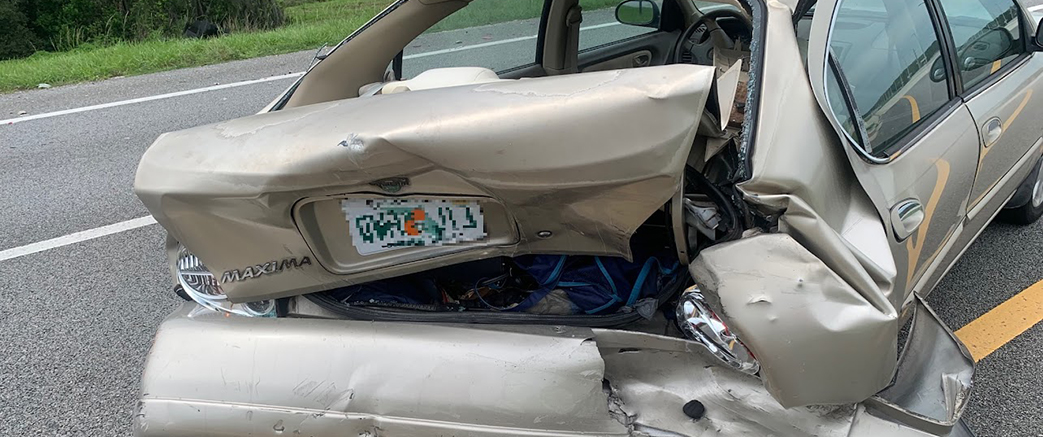
Contact Us to Discuss Your Florida Car Accident Injury
If you’ve been injured in a car accident, you owe it to yourself to find excellent legal representation. We’ve helped thousands of clients recover hundreds of millions of dollars over the past 30 years. Read some of Abrahamson & Uiterwyk reviews from dozens of our satisfied clients.
We can’t represent everyone, but we help everyone we can. Contact us for a free consultation. We’ll review your case and let you know if we can give you the legal representation you deserve. If you’ve experienced an injury in an Uber accident, contact one of our Florida Uber accident lawyers today. Or if you have suffered injuries due to a left-turn accident, do not hesitate to contact a Florida left-turn accident lawyer near you at Abrahamson & Uiterwyk.
Read more on:
When Can Kids Sit in the Front Seat in Florida
What Our Clients Say About Us On Google
What Our Clients Say About Us On Google:
Florida Injury Case Types
The highly-experienced Florida personal injury law firm of Abrahamson & Uiterwyk provides:
- Car accident lawyers in Florida
- Guide to Florida Car Accident Law
- Motorcycle accident lawyers in Florida
- Slip & fall lawyers in Florida
- Truck accident lawyers in Florida
- Bicycle accident lawyers in Florida
- Brain injury lawyers in Florida
- Birth injury lawyers in Florida
- Pedestrian accident lawyers in Florida
- Florida Red Light Car Accident Settlement Lawyers
- Construction accident lawyers in Florida
- Wrongful death lawyers in Florida
- Actos injury lawyers in Florida
- Boating accident lawyers in Florida
- Business interruption insurance lawyers in Florida
- Defective drugs medical device lawyers in Florida
- Dog bite lawyers in Florida
- Drunk driving accident lawyers in Florida
- Insurance disputes lawyers in Florida
- Medical malpractice lawyers in Florida
- Metal hip knee implant lawyers in Florida
- Nursing home abuse lawyers in Florida
- Product liability lawyers in Florida
- Work injury / workers comp lawyers in Florida
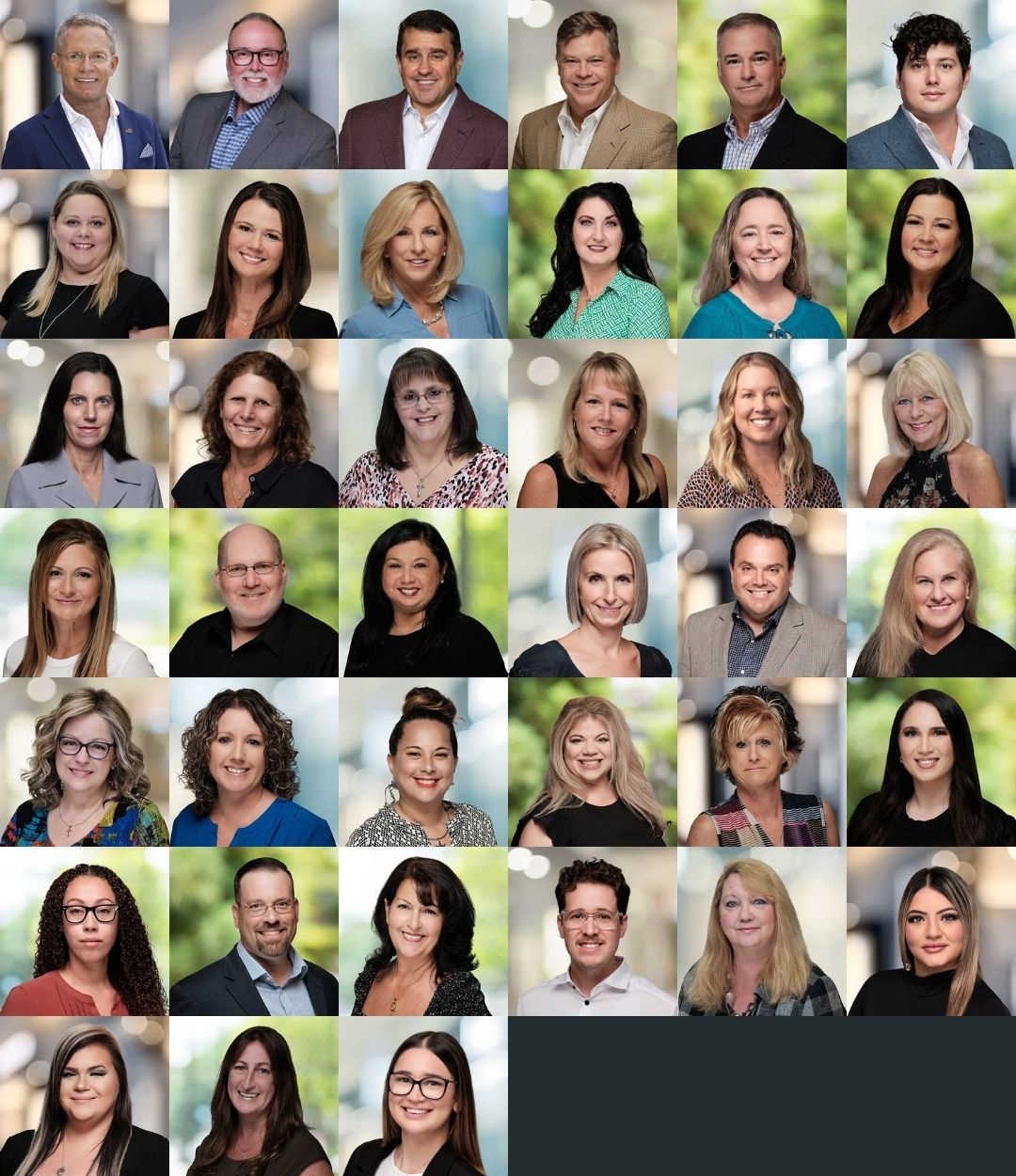
The Abrahamson & Uiterwyk Attorneys and Injury Law Team
“A system of hiring an attorney on an hourly basis rewards inefficiency, creates delays and commonly creates negative issues between the lawyer and the client. Representing clients on a contingency basis in which the law firm earns a percentage of the settlement, however, is much more rewarding for the client and the injury attorneys.”
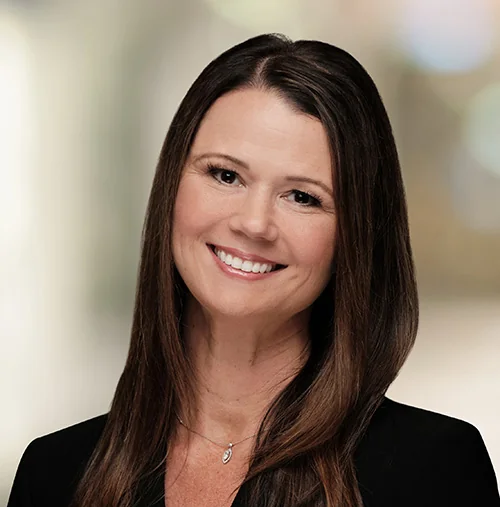
Client Services Manager
Kelly Anne Kelly
As a Client Services Manager, Kelly’s focus is to enhance client satisfaction by continuously looking for ways to fulfill clients’ needs and concerns.

